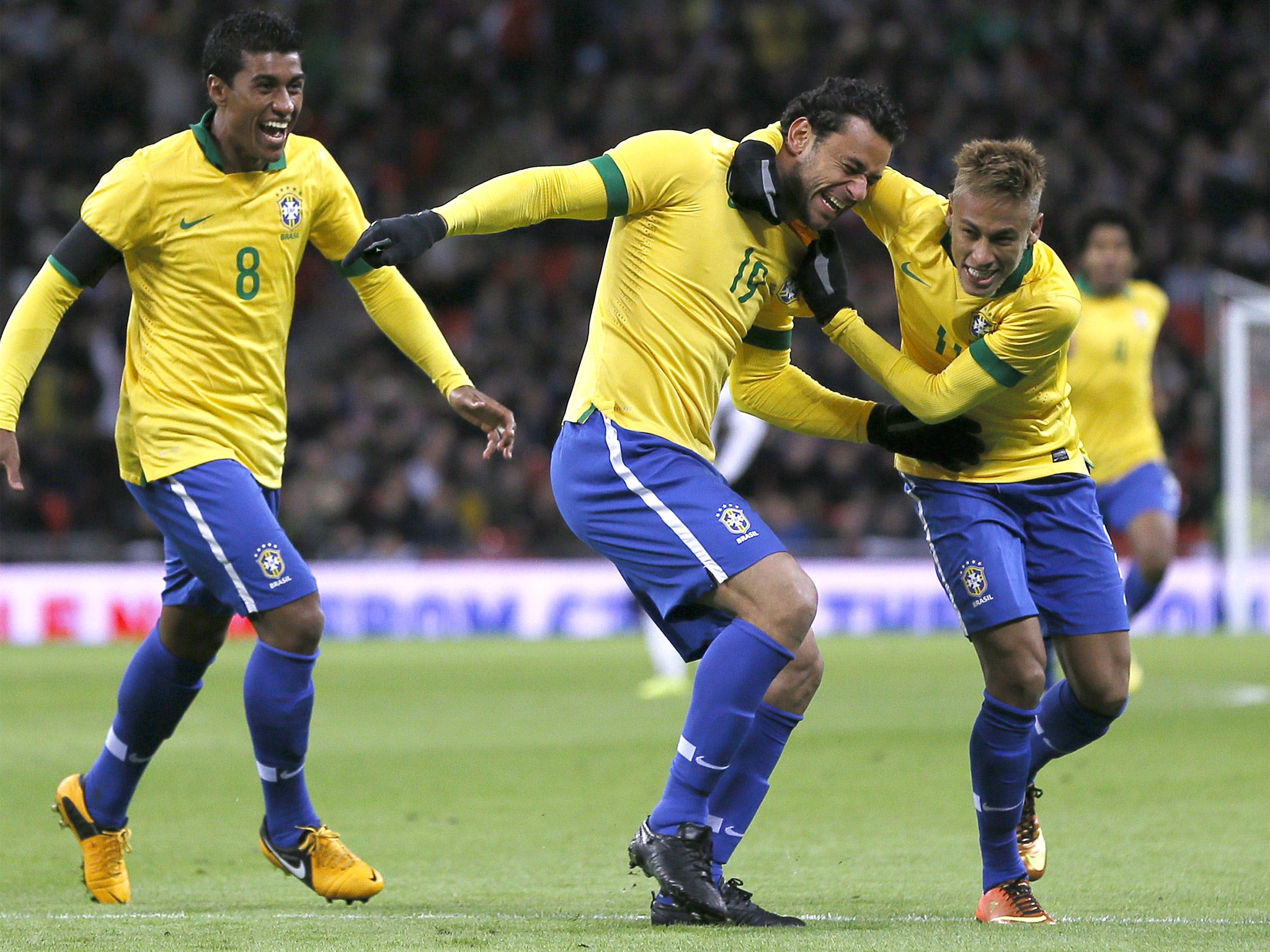Brazil desperately in need of Luiz Felipe Scolari's sure touch
Chelsea's Oscar easily outshone the much-hyped Neymar

Your support helps us to tell the story
From reproductive rights to climate change to Big Tech, The Independent is on the ground when the story is developing. Whether it's investigating the financials of Elon Musk's pro-Trump PAC or producing our latest documentary, 'The A Word', which shines a light on the American women fighting for reproductive rights, we know how important it is to parse out the facts from the messaging.
At such a critical moment in US history, we need reporters on the ground. Your donation allows us to keep sending journalists to speak to both sides of the story.
The Independent is trusted by Americans across the entire political spectrum. And unlike many other quality news outlets, we choose not to lock Americans out of our reporting and analysis with paywalls. We believe quality journalism should be available to everyone, paid for by those who can afford it.
Your support makes all the difference.Luiz Felipe Scolari is not a man inclined to be weighed down with self-doubt. Understandable perhaps in someone who has coached his team to success in a World Cup, but “Big Phil” was like that long before the heady triumph of Yokohama 11 years ago.
Which is one of the main reasons why, when Mano Menezes' emerging young Brazil followed their struggles in the 2011 Copa America by freezing in the Olympic final in this stadium six months ago, the Brazilian football federation began firming up Plan B. Menezes was building a young exciting team based on the virtues of possession, dribbling and devastating changes of tempo that made the world fall in love with canary-yellow shirts. In time it might have worked. The young talents he was grooming, Neymar, Oscar and Lucas Moura, have the potential to be the core of an outstanding attacking team.
But time is not on Brazil's side. The country is still scarred by the failure, 63 years ago, to win the last World Cup they hosted. Perceived culprits such as goalkeeper Barbosa lived out their days in ignominy. In the wake of 1950 the Selecao even binned their white shirts, only then adopting yellow.
So Scolari, a proven winner, a man of nerve, was summoned to instill those qualities into the team. The man from gaucho country in the south is not a slave to the Copacabana image. His club teams were experts at the "tactical foul", those little tugs and trips that break up a game just as an opponent is building momentum. His 2002 winners never really lit up the tournament in the traditional way. For Scolari the result justified the methods, and right now most of his countrymen would agree.
However, this needs to be put in perspective. The 2002 team were not physical, ersatz Europeans like the notorious 1974 side. They had Rivaldo, Ronaldo and Ronaldinho in attack. And it was the latter he recalled to add the experience the Olympics indicated Brazil lacked.
But Ronnie is not the ideal grizzled veteran when it comes to showing leadership, as the penalty incident showed. Neymar was supposed to take it but he was changing his shin-pads and Ronaldinho grabbed the ball. Scolari said: "And no-one is going to ask him to change [his mind]". Then Ronaldinho failed to score from the spot.
Scolari also retained Oscar and Neymar telling the latter he had a free role and the rest of the team would have to work around him. Since Ronaldinho does much the same that made for a fluid forward line but not one which did much pressing. England's midfield were given more space to play in than they might have expected and used it well, particularly Jack Wilshere who drove through the midfield acres in that barrel-chested way of his.
Scolari later blamed England's midfield dominance on a lack of physical conditioning but Ronaldinho never worked very hard when he was young, hungry and fit. It seemed he had been watching the Super Bowl as he sought to ease himself into the quarter-back position, pinging passes out wide to Neymar and Oscar, rather than influence play at the sharp end.
Of those two, Chelsea's Oscar comfortably outshone Santos' much-hyped Neymar giving Ashley Cole one of the harder 45 minutes of his 100 caps. The difference is Oscar has had half a season playing in England.
The 21-year-old Neymar was one of four domestic players in Scolari's starting XI. Brazil's growing economic power (and next year's World Cup) has enabled clubs to bring players like Ronaldinho back home and hold on to the likes of Neymar. But while the Premier League is by no means perfect, it is an excellent finishing school for players from less physically demanding leagues – while Brazil's domestic game does not lack for tough challenges it lacks the continuous intensity of the big European leagues.
Brazil had chances, but they tended to follow English errors. This showed how well England screened their back four, with captain Steven Gerrard playing a very mature role, but the lack of creativity will concern Scolari.
A problem is that Brazil, as World Cup hosts, do not have qualifying matches. This summer's Confederations Cup is the only real chance to observe and hone his team under pressure so Scolari wants to have "90 per cent" of his World Cup squad in place by then.
After it he expects his team to have found its identity. Will it be a winning one, a captivating one, neither, or both? Will Ronaldinho, the link to his 2002 winners, have a role? Or will Menezes' youngsters still be at the core?
As with England there are still more questions than answers, but on this evidence, Roy Hodgson is closer to solving them than Scolari.
Join our commenting forum
Join thought-provoking conversations, follow other Independent readers and see their replies
Comments